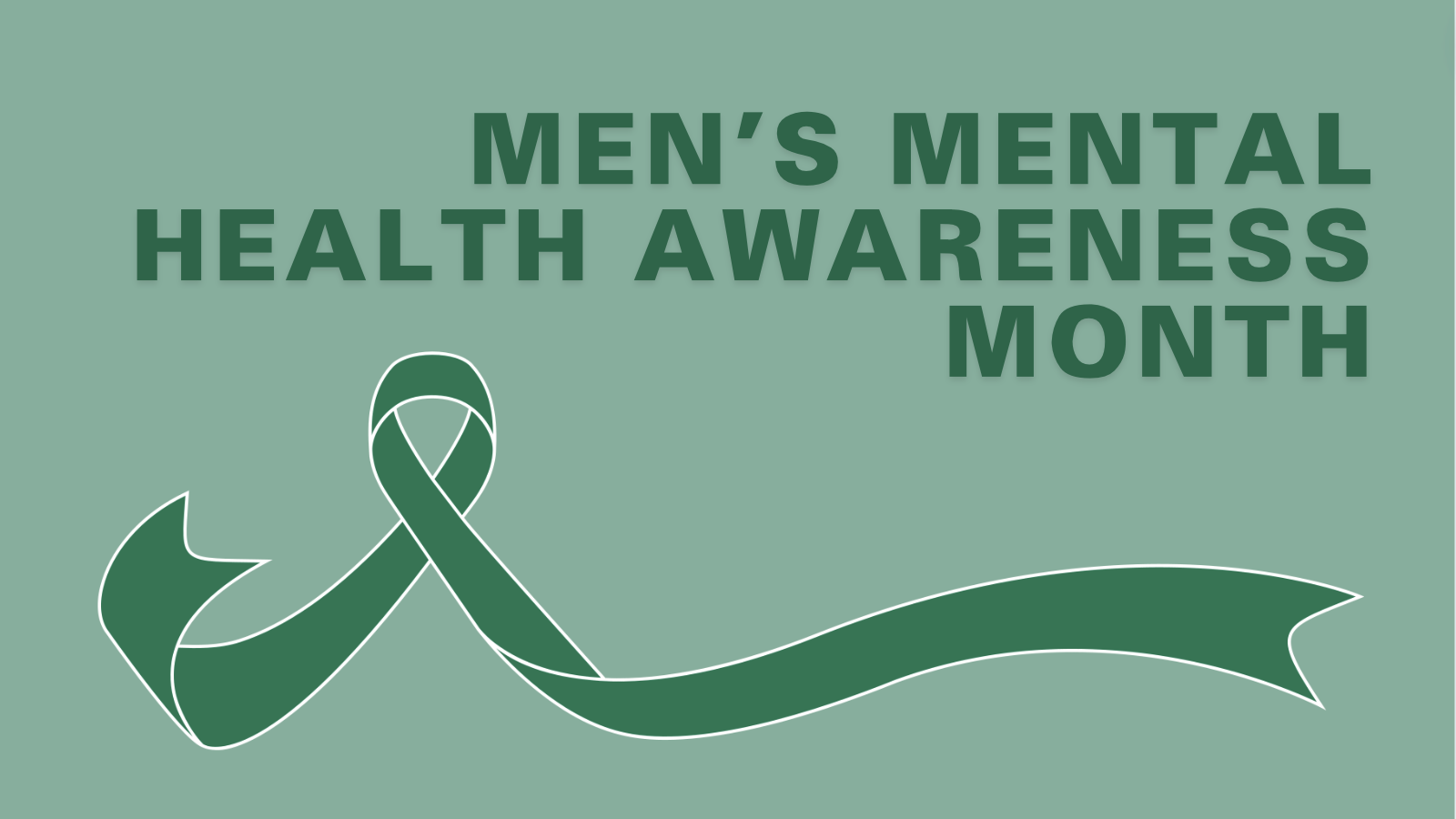June is Men’s Mental Health Awareness Month
by Sullivan Trahan

During the month of June, our Center is delighted to join in the observance of Men’s Mental Health Awareness Month. According to statistics compiled by the National Institute of Mental Health, 40% of men with reported mental illness received care compared to 52% of women with reported mental illness that received care. This is due to the stigma surrounding men needing help or sharing their mental health struggles. Society often sets expectations that men should be able to handle problems themselves, or even portrays men as less if they do struggle with mental health issues. Therefore, men often feel alone and unable to ask for help when they need it.
Without access to appropriate mental health services, men can fall victim to two of the most common mental health illnesses that persist: substance abuse and depression (Griffith et al., 2024). According to the National Center for Biotechnology Information, approximately 20% of men in the United States abuse alcohol during their lives. Minority groups, gay and bisexual men, and veterans are among the most vulnerable groups to suffer from substance abuse.
Furthermore, approximately 6 million American men suffer from depression each year (Mental Health America, 2024). Depression and other mental health problems can lead to serious consequences for men, including suicide. Men are four times more likely than women to commit suicide (Mental Health America, 2024). The number of male suicides has increased each year since 2000. Other potential risk factors include social isolation, unemployment, military-related trauma, genetic predisposition, and mood disorders (Mental Health America, 2024).
Together, we can help combat this issue by encouraging and supporting men to seek help when they need it. Taking the time to learn more about men’s mental health and spreading awareness is an excellent place to start. There is a free exhibit conducted by the Drinking Gourd Gallery, which is located at the Southeast Regional Library in Garner. This exhibit attempts to unveil the struggles of men who struggle with mental health issues. There is a special focus on civilian and veteran life. The library is open from 9:00am until 9:00pm Monday through Thursday; 9:00am until 6:00pm on Fridays and Saturdays; from 1:00pm to 5:00pm on Sundays.
CFACE would also like to encourage all those dealing with mental health issues to seek help if they need it. The NC State Counseling Center is an option for any students. Also, Hope4NC is available for North Carolinians to connect individuals with mental health resources (free and confidential emotional support, counseling referrals, and community resources). The National Suicide Hotline number is +1 (800) 273-8255 and for any NC State students or faculty, you can call (919) 515-2423 to speak with a crisis counselor.


